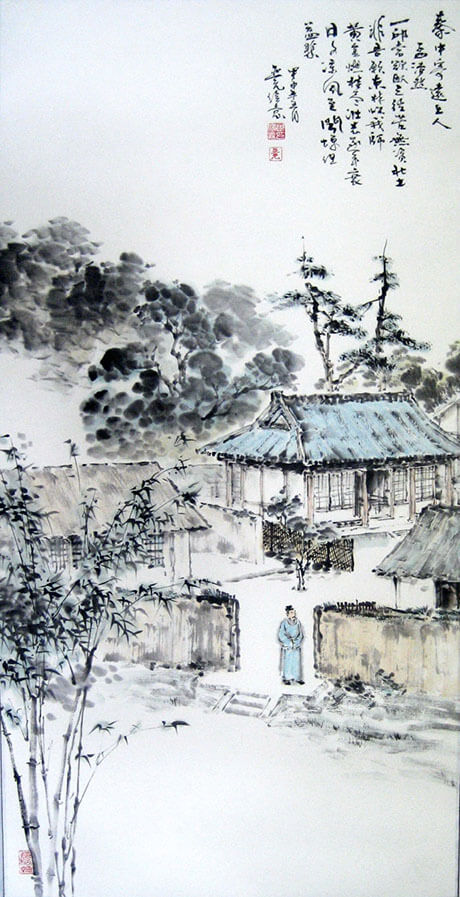To Buddhist Priest Yuan From Chang'an
- Poetry of Meng Haoran

How gladly I would seek a mountain
If I had enough means to live as a recluse!
For I turn at last from serving the State
To the Eastern Woods Temple and to you, my master.
...Like ashes of gold in a cinnamon-flame,
My youthful desires have been burnt with the years-
And tonight in the chilling sunset-wind
A cicada, singing, weighs on my heart.
Five-character-regular-verse
This poem by Meng Haoran expresses his dejection after official career setbacks and yearning for reclusive life, while acknowledging his inability to fully detach from worldly concerns. Written with plain language and candid emotion, it stands as a moving lyrical confession.
一丘常欲卧,三径苦无资。
北土非吾愿,东林怀我师。
黄金然桂尽,壮志逐年衰。
日夕凉风至,闻蝉但益悲。
一丘嘗欲臥, 三徑苦無資。
北土非吾願, 東林懷我師。
黃金燃桂盡, 壯志逐年衰。
日夕涼風至, 聞蟬但益悲。
- Why Chinese poems is so special?
- The most distinctive features of Chinese poetry are: concision- many poems are only four lines, and few are much longer than eight; ambiguity- number, tense and parts of speech are often undetermined, creating particularly rich interpretative possibilities; and structure- most poems follow quite strict formal patterns which have beauty in themselves as well as highlighting meaningful contrasts.
- How to read a Chinese poem?
- Like an English poem, but more so. Everything is there for a reason, so try to find that reason. Think about all the possible connotations, and be aware of the different possibilities of number and tense. Look for contrasts: within lines, between the lines of each couplet and between successive couplets. Above all, don't worry about what the poet meant- find your meaning.
- Early Summer: Seeking Yu Creek After Rain
- Midnight Vigil in West Garden
- Villager's Song I
- Villager's Song II
- Villager's Song III
- The Ferry at Yiyang
- The Village Tavern
- Quatrain of Four Words: Deep Love, True Heart
- Mountain's End
- Seven Poems on Kaiyuan Era: Dancing Horses